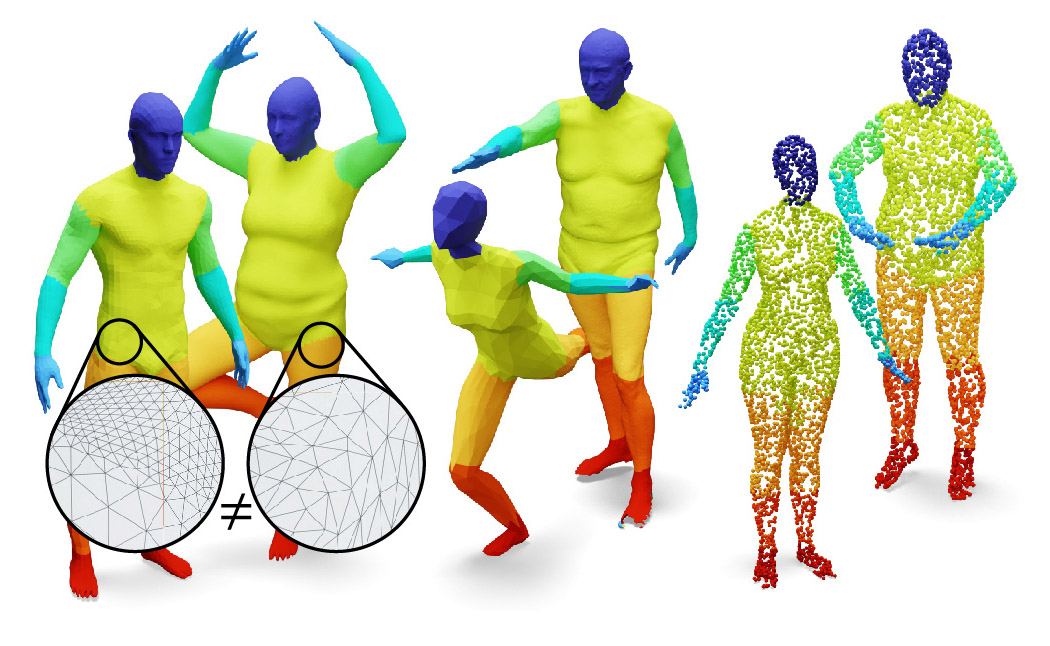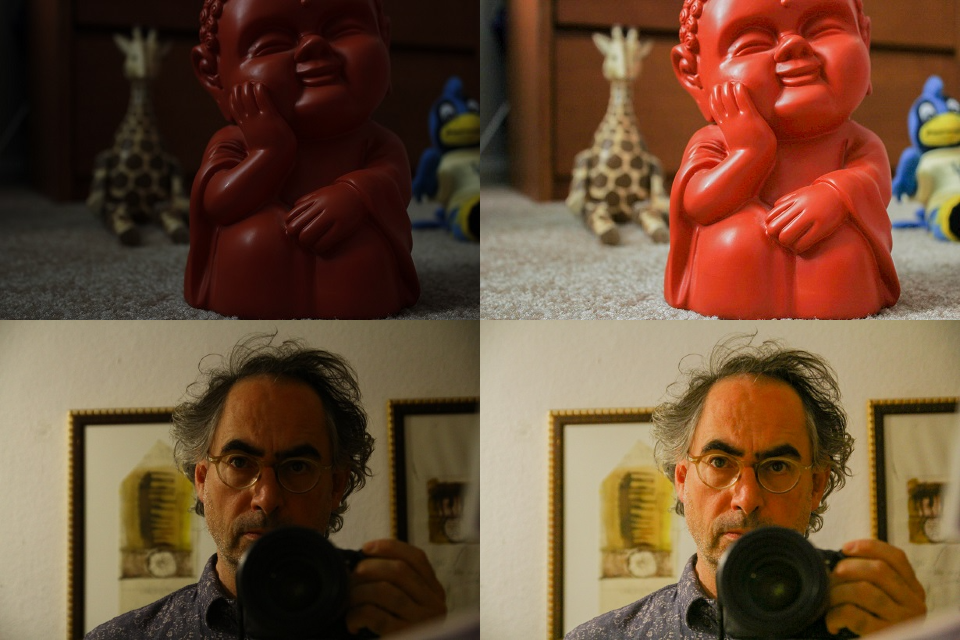I am a PhD student in the GeomeriX team at École Polytechnique, advised by Prof. Maks Ovsjanikov. My research sits at the intersection of Computer Graphics, Geometric Deep Learning, Geometry Processing, and Optimization, with a focus on 3D shape comparison.
During my PhD, I interned at Adobe Research, where I worked on feed-forward diffusion models for text-to-3D scene generation.
Before that, I earned a Master's degree in Applied Mathematics and Machine Learning from ENS Paris and a Master's degree in Computer Science and Machine Learning from CentraleSupélec.
NewsResearch

AtomSurf: Surface Representation for Learning on Protein Structures
ICLR 2025
AtomSurf adapts a state-of-the-art surface-based learning architecture for protein analysis, provides the first direct benchmark comparison against alternative representations, and introduces a novel integrated approach that combines surface and graph-based features to achieve state-of-the-art results.

Robust Deep Learning-based Methods for Non-Rigid Shape Correspondence
PhD Thesis, École Polytechnique IP Paris Best PhD Award 2025
This thesis advances the state of non-rigid 3D shape matching using deep learning within the functional map framework. Key contributions include Deep Partial Functional Maps (DPFM) for partial matching, the Neural Correspondence Prior (NCP) for unsupervised correspondence, and robust feature pretraining strategies. The work also proposes a zero-shot matching method and improves the interpretability and generalization of learned features.


Unsupervised Representation Learning for Diverse Deformable Shape Collections
3DV 2024
This work introduces an unsupervised mesh autoencoder that creates a universal latent space for diverse 3D shapes using spectral pooling and functional maps, enabling high-quality reconstructions and smooth interpolations without requiring mesh correspondence


Understanding and Improving Features Learned in Deep Functional Maps
CVPR 2023 Highlight (top 2.5%)
This work shows that features learned in deep functional maps can be used as pointwise descriptors for direct shape matching and proposes modifications that improve accuracy and bridge intrinsic and extrinsic surface-based learning

Generalizable Local Feature Pre-training for Deformable Shape Analysis
CVPR 2023 Highlight (top 2.5%)
VADER investigates the transferability of geometric features for deformable 3D shape analysis and introduces a method for optimizing the receptive field size in transfer learning

SRFeat: Learning Locally Accurate and Globally Consistent Non-Rigid Shape Correspondence
3DV 2022
SRFeat introduces a smoothness-regularized contrastive learning framework for non-rigid shape correspondence, combining highly discriminative local features with geometric consistency to improve matching accuracy

NCP: Neural Correspondence Prior for Effective Unsupervised Shape Matching
NeurIPS 2022
NCP is a fully unsupervised deep learning-based approach for computing correspondences between 3D shapes, leveraging the inherent structure of neural networks to generate high-quality matches, even in challenging non-isometric or sparse point cloud scenarios

DiffusionNet: Discretization Agnostic Learning on Surfaces
SIGGRAPH 2022
Simple and scalable deep learning on meshes, points clouds, etc., via spatial diffusion. The networks automatically generalize across different samplings, resolutions, and even representations. Spatial support is automatically optimized as a parameter!

DPFM: Deep partial functional maps
3DV 2021 Best Paper Award
DPFM is the first deep learning-based method for computing dense correspondences between non-rigid 3D shapes with strong partiality and can handle both partial-to-full and partial-to-partial matching
Software

Low-light-Image-Enhancement
Python implementation of two low-light image enhancement techniques via illumination map estimation
